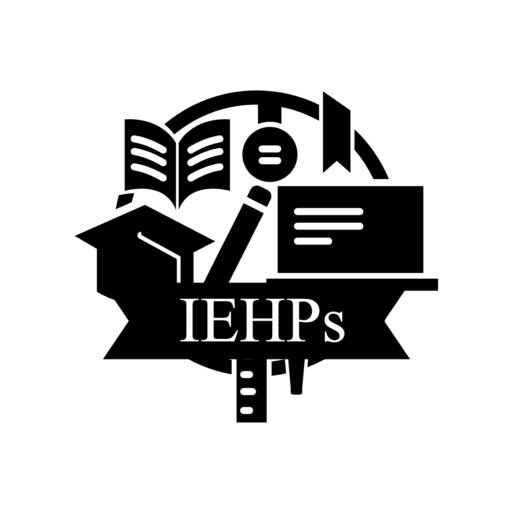Alternative Pathways to Dental Licensure in Canada
For internationally educated dentists (IEDs) who wish to practice in Canada, there are multiple pathways to licensure beyond the standard NDEB Certification route. These alternatives recognize international qualifications while helping candidates align with Canadian professional standards. This guide outlines each available option, including university-based programs and related dental career paths.
1. NDEB Equivalency Process
The National Dental Examining Board of Canada (NDEB) offers an Equivalency Process for internationally educated dentists who graduated from non-accredited dental programs. This process assesses whether a candidate’s knowledge, clinical reasoning, and technical skills meet Canadian standards.
The Equivalency Process includes three assessments:
-
Assessment of Fundamental Knowledge (AFK):
A multiple-choice exam that evaluates understanding of biomedical and clinical dental sciences.
-
Assessment of Clinical Judgement (ACJ):
A scenario-based exam testing diagnostic skills, radiographic interpretation, ethical decision-making, and treatment planning.
-
National Dental Examination of Clinical Competence (NDECC):
A hands-on clinical exam where candidates demonstrate operative and prosthodontic techniques on mannequins and complete an OSCE-style situational judgement component.
Candidates who pass all three assessments become eligible to enter the NDEB Certification Process, which is required to apply for provincial licensure in Canada.
For more information, Check NDEB
2025 Updates
-
Optional Citizenship/PR Submission:
As of February 2025, applicants may optionally submit proof of Canadian citizenship or permanent residency when applying to the Equivalency Process. While not mandatory, this may affect future exam prioritization. -
NDECC Registration Prioritization (Effective July 1, 2025):
NDEB will prioritize NDECC exam registration in 3 stages:-
First-time candidates who recently passed the ACJ.
-
Candidates who have submitted proof of Canadian citizenship or permanent residency.
-
All other eligible candidates.
-
2.Qualifying/Advanced Standing Programs (Canadian DDS/DMD Route)
Several Canadian dental schools offer programs for internationally educated dentists under names such as Qualifying Programs or Advanced Standing Programs. These are essentially the same type of program, designed to grant internationally trained dentists a Canadian-accredited DDS or DMD by completing the final 2–3 years of the curriculum.
Notable Programs
- University of Alberta – DDS Advanced Placement Program
-
University of Toronto (U of T) – International Dentist Advanced Placement Program (IDAPP)
-
Western University – Advanced Standing Program for International Dental Graduates (ASPIDG)
-
McGill University – Degree Completion for International Dentists
-
University of Manitoba – International Dentist Degree Program (IDDP), Dr. Gerald Niznick College of Dentistry
-
University of Saskatchewan – International Dental Degree Program, College of Dentistry
-
Dalhousie University – Faculty of Dentistry
Note: ADAT Requirement Update (2025):
As of 2025, many Canadian dental schools have transitioned to requiring the Advanced Dental Admission Test (ADAT) instead of the NDEB AFK or Dental Specialty Core Knowledge Exam (DSCKE) for admission into qualifying or advanced standing programs.
Examples include:
-
University of Toronto (IDAPP)
-
University of Manitoba (IDDP)
-
University of Saskatchewan
Be sure to check the current admission page of each university to confirm the exact testing requirements before applying
3. Licensure Pathway for International Dental Specialists (DSATP)
The Dental Specialty Assessment and Training Program (DSATP) is a licensure route designed specifically for internationally trained dental specialists such as periodontists, orthodontists, prosthodontists, and oral surgeons.
Participants undergo specialty-specific assessments and clinical training at Canadian dental faculties to meet licensing standards set by provincial regulators.
This program does not lead to a general DDS/DMD, but instead helps foreign-trained specialists obtain licensure in their field of specialization.
4. ACFD Bridge Training Program (BTDPC)
The Bridge to Dental Practice in Canada (BTDPC) is a third licensure stream supported by the Association of Canadian Faculties of Dentistry (ACFD).
This training program is designed to support internationally educated dentists in strengthening their clinical, communication, and cultural competencies to meet Canadian practice expectations.
Unlike university qualifying programs, this is not a formal degree, but it may serve as a valuable alternative to the NDEB Equivalency Process or academic bridging routes.
Completion may lead to enhanced readiness for:
-
NDEB Certification exams
-
Provincial licensure applications
-
Advanced Standing admissions
5. Alternative Careers in Dentistry
For internationally trained dentists exploring alternative careers within the Canadian dental field, several professions offer rewarding opportunities. Beyond dental hygienists, dental assistants, and denturists, other roles include dental technologists, dental therapists, and dental office administrators. Each profession has distinct educational requirements, certification processes, and scopes of practice.
Dental Hygienists
-
Role: Cleanings, oral assessments, preventive care
-
Requirements: Diploma or degree + NDHCB exam + provincial registration
Dental Assistants
-
Role: Support dentists with procedures, prep, and instruments
-
Requirements: Certificate program + NDAEB exam
Denturists
-
Role: Design, fit, and create dentures independently
-
Requirements: Diploma in denturism + licensure exam
Dental Technologists
-
Role: Create crowns, bridges, and appliances in labs
-
Requirements: Dental technology program + certification
Dental Therapists
Dental therapists provide basic dental treatments, including restorative care and extractions, primarily in public health settings or underserved communities. They bridge the gap between dental hygienists and dentists, offering services to populations with limited access to dental care. Educational requirements and scopes of practice vary across provinces and territories.
Dental Office Administrators
-
Role: Patient coordination, billing, insurance, scheduling
-
Requirements: Certificate or diploma in medical/dental admin (optional); often trained on the job
Government Support for Credential Recognition
In 2024, the Government of Canada launched new initiatives to reduce credentialing barriers for internationally trained professionals, including dentists.
Programs like the BTDPC are funded in part by this initiative, which aims to streamline pathways and support integration into the Canadian dental workforce.
Considerations
- Immigration Status: Ensure your study program qualifies for a study permit and is eligible for a Post-Graduate Work Permit (PGWP) if applicable.
-
Language Proficiency: Many programs require IELTS Academic or TOEFL results.
-
Funding & Scholarships: Some provinces (e.g., BC, Nova Scotia) offer bridging bursaries for internationally trained healthcare professionals.
-
Support Networks: Join forums and associations like the Canadian Dental Association (CDA) or local dental societies for mentorship and guidance.
